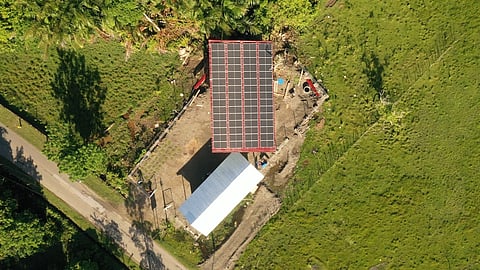

Key takeaways:
A solar-powered ice maker project in Sulamu village produces up to 1.2 tons of ice per day to support local fishing communities
The system integrates brine storage, batteries, and smart energy management to adapt ice production to solar availability
Following its success, a second installation has been operational since 2024 in Kawa village, demonstrating scalability
A project from the Deutsche Gesellschaft für Internationale Zusammenarbeit (GIZ) Indonesia has been nominated for The smarter E AWARD 2025 under the Outstanding Projects category.
This German-Indonesian project, called Solar Ice Maker, can produce up to 1.2 metric tons of block ice every day using energy from an off-grid solar system. This translates to 120 blocks of ice, weighing 10 kg each. Commenced in 2022, this project aims to provide access to effective and affordable cooling for a small fishing community in Sulamu village in Indonesia. This, in turn, helps the community gain better market access and income. An additional benefit is it reduces food spoilage.
GIZ represents all the partners of this project, including the United Nations Development Programme (UNDP), International Pole and Line Foundation (IPNLF), Institut für Luft- und Kältetechnik (ILK) Dresden, PT ANEKA SUMBER TATA BAHARI (PT ASTB), and AIREF, an Indonesian manufacturer of refrigeration equipment. A total of 9 private enterprises have co-financed this project.
The ice maker requires about 100 kWh to produce 1 metric ton of ice. The refrigeration system comprises a brine heat storage tank with a 24 kWh storage battery to ensure continuous ice production. According to GIZ, the system uses an intelligent energy management system and sensor technology to adjust the ice production based on solar irradiation. It also notes that the system uses a highly efficient motor and fans, designed with inspiration from the wings of owls. The refrigeration setup includes a 12 HP semi-hermetic compressor and R290 refrigerant.
Designed to be scalable and replicable, a second solar ice maker project was launched in Kawa village, Indonesia, which has been operational since 2024.
